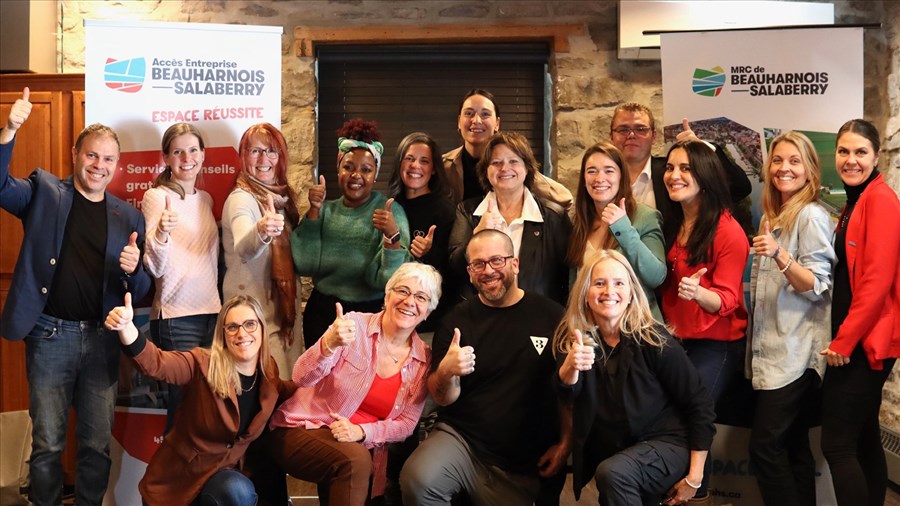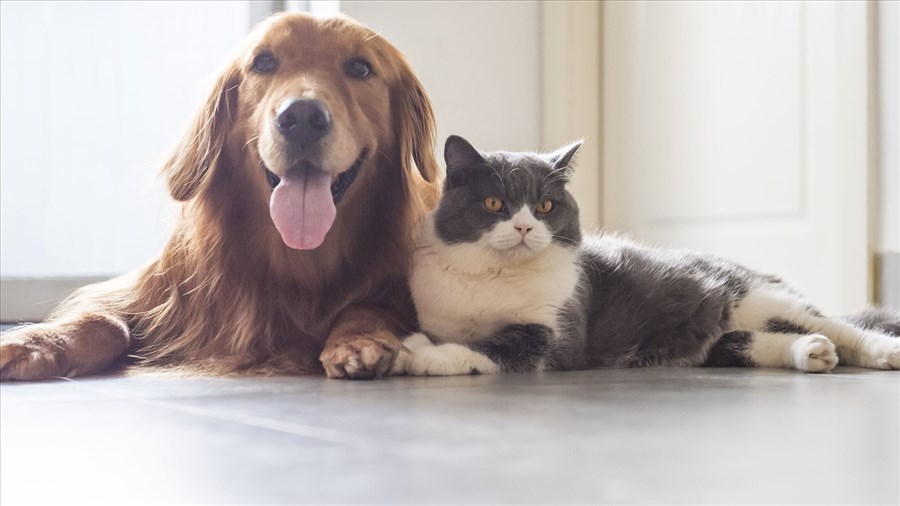Interview with Diane Songwa
From Cameroon to Suroît Hospital to practice nursing
In February 2023, 17 students from Africa arrived in Quebec on a cold winter's day punctuated by a heavy snowstorm to complete their first nursing refresher course at Cégep de Valleyfield. Among them was Diane Songwa, 32, from Cameroon, with whom Néomédia spoke in the last few hours.
In the very first minutes of the interview, the young woman recalls the welcoming ceremony for her group of 19 French-speaking students from Africa. The event took place on January 24, 2023, when the outside temperature hovered around -30 degrees.
What led this thirty-something living thousands of kilometers from Canada, and from Quebec, to settle in Salaberry-de-Valleyfield to pursue her AEC in nursing? "It was really a dream of mine to come to Canada and work in nursing. Everything I did in my country professionally was to that end.That was my motivation. Before I arrived, I worked for six years in nursing in my own country. Then I went to Belgium to do a master's degree in public health. Then I saw an offer from CISSSMO, which was looking to recruit international healthcare workers. I jumped at the chance," she recounts.On the road to the Ordre des infirmières et des infirmiers du Québec exam
Having completed her schooling, Diane is currently waiting to sit the Ordre des infirmières et des infirmiers du Québec exam, scheduled for next March. Until then, she is working as a beneficiary attendant at the Centre hospitalier du Suroît.
"During our studies, we could only work 20 hours a week, as our priority was our training. From the end of our training until our exam, we can work full-time.From Monday January 29, all the students who trained with me will become nursing candidates, which means we'll be able to carry out professional activities reserved for nurses," she explains.
What's the difference between nursing in Cameroon and nursing in Canada? " In terms of the human body, nothing, everything's in the same place (laughs). The main differences lie in patient care and in the equipment used in Canada. Here, it's more sophisticated than in my country, where, for example, to insert an IV, you have to go in with a dropper and a monitor.We encounter more different pathologies here, such as COPD, lung cancer and arterial insufficiency, " she says.
Generally speaking, what has she found most challenging about this experience? "I'd say my adaptation to the climate was something.Every winter is different, but you just have to cover up well to avoid catching a cold. Otherwise, academically, it was a challenge to master all the existing health pathologies and all the medications to treat them.You also had to know all the side effects of these drugs and what they didn't work with.You also had to know what to look out for in a patient and not limit yourself to simply administering the drugs."
How is she coping with the separation from her loved ones? "It's difficult, for sure, not being close to them. You also have to prepare for it psychologically. I tell myself that when I've passed my training, I'll be able to go and see them and make up for lost time."
On March 26, Diane and her 16 fellow AEC en soins infirmiers graduates will sit the Ordre des infirmières et infirmiers du Québec exam.
Is the young woman stressed about this ultimate step that will enable her to officially practice the profession? "Yes, I'm stressed.In our CEGEP courses, we were assessed on the material we had just seen, not on our overall knowledge.In this exam, you may be questioned on various subjects such as pediatrics or geriatrics. There's a lot of knowledge to revise," she explains.
For the time being, the young woman and her group are revising the notions learned in the courses in small groups, to prepare as well as possible for this ultimate assessment.
An experience to recommend?
Now that Diane has successfully completed her training and is waiting to sit her OIIQ exam, would she recommend this experience? "Yes, definitely.It's a great adventure that allows us to change our living and working environment and meet new people. We get to experience lots of new medical procedures that we can't do in our respective countries. It's a different experience that's worth living," she says.
What advice would you like to share with future students? "You have to have a lot of mental strength to go through this experience.It's not easy.The training is condensed.There were 19 of us at the start of the course and we ended up with 17. It's stressful, especially when it comes to internships. If you fail, that's it, you don't get your diploma. So my advice would be to keep the bar high and never drop it during training, and for those with families to leave them behind so you can concentrate fully on learning. Afterwards, it will always be possible to bring them into the country."
How does Diane see her future following her exam? "I'm going to continue working for CISSSMO at the hospital.It's thanks to them that I'm here. Before I came to Canada, I had tried several times to come here.I hope that, in the future, my diploma in public health will be recognized," she concludes.
This AEC in nursing is the result of a joint pilot project between the CISSS de la Montérégie-Ouest, the Ministère de l'Immigration, de la Francisation et de l'Intégration (MIFI) and the Cégep de Valleyfield. New cohorts are underway following the success of the first.







